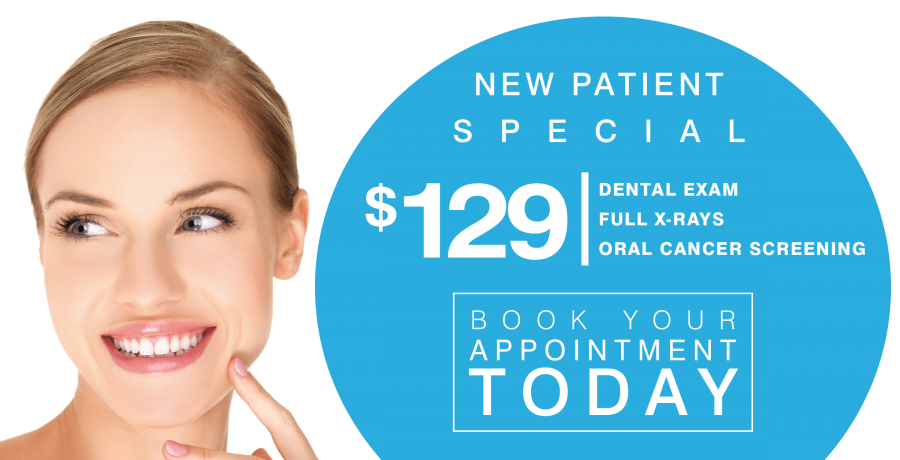What is sleep apnea?
Obstructive sleep apnea, a condition in which your airways close up briefly throughout the night, can have a huge effect on your health. It can lead to daytime sleepiness (since every time you stop breathing momentarily, you wake up) and it increases your risk for high blood pressure, atrial fibrillation, congestive heart failure, liver problems, and other serious health issues. But it turns out, the health issues don’t stop there. Sleep apnea has been shown to negatively affect your teeth too. Here are three dental problems to keep an eye out for if you have sleep apnea.
Cracked or worn teeth: Grinding or clenching your teeth while you sleep—a condition called bruxism—is more common in people who have sleep apnea. One in every four people who has sleep apnea grinds his or her teeth. Over time, this can cause tooth sensitivity (and in some cases, cracked and damaged teeth). If you have tired, tight jaw muscles or sensitive teeth, this might be happening to you.
Jaw pain: Sleep apnea is associated with chronic pain disorders, including jaw pain like TMJ or TMD. If it hurts to open and move your jaw bones, you may have one of these conditions.
Higher risk of cavities: People who have sleep apnea are likelier to breathe through their mouths—a habit that can dry out protective saliva and lead to more tooth decay. As a result, your dentist might notice more enamel erosion and cavities.
The good news is that getting control over your sleep apnea can reduce or eliminate these dental issues. Talk to your doctor or a sleep specialist to find out the best treatment plan for you. And talk to your dentist, too, about the various ways that you can treat any related dental problems.
benefits of treating sleep apnea
Treating your sleep apnea can improve your life and make each day better. It can help improve your:
Daytime Alertness
Sleepiness and daytime fatigue are common symptoms of sleep apnea. We can restore your normal sleep pattern and increase your total sleep time by eliminating breathing pauses in your sleep. This will help you wake up feeling more refreshed and boost your energy throughout the day.
Concentration
Untreated, severe sleep apnea can damage your brain tissue. As a result you may have trouble concentrating. You also may suffer from memory loss. Using us may improve your ability to think, concentrate and make decisions. This also can improve your productivity and decrease your chance of making a costly mistake at work.
Emotional Stability
Untreated sleep apnea increases your risk of depression. We can help improve your mood, reduce your risk of depression and improve your overall quality of life.
Snoring
By keeping your airway open as you sleep, we will reduce or eliminate the sound of your snoring. While you may not notice, you bed partner will benefit from a quieter sleep environment.
Medical Expenses
By improving your health, our therapy can reduce your medical expenses. Sleep apnea can lead to more health problems and more doctors’ visits. Treatment for serious health risks linked to sleep apnea such as heart disease, stroke and diabetes can be costly. Medical expenses will decrease when you treat your sleep apnea.
FAQs
What causes the airway to close during sleep?
Extra tissue in the back of the airway, such as large tonsils, decrease in the tone of the muscles that hold the airway open, the tongue falling back and closing off the airway.
How many people in the US have sleep apnea?
Five to 10 percent of adults in the United States have Obstructive Sleep Apnea (OSA). This is approximately 20 million people, and many—the majority—are yet to be diagnosed.


